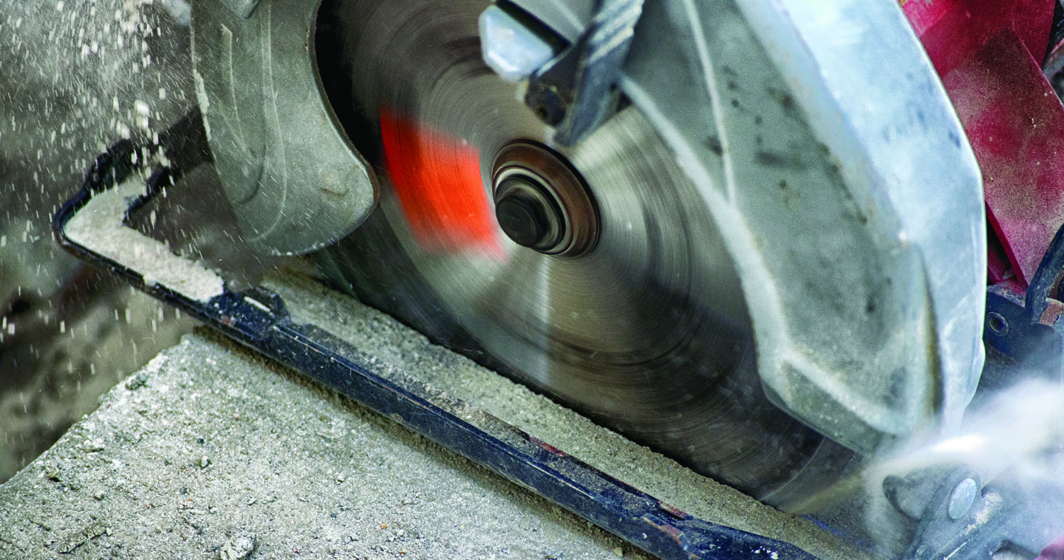As more and more becomes known about the danger of silicosis – an irreversible and potentially fatal lung disease caused by inhaling unsafe levels of silica dust – experts and decision makers have explored the best way to keep safe those who could be exposed, Kathryn Kernohan writes.

With plumbers, construction workers and other tradespeople at particularly high risk of silicosis due to the ongoing popularity of engineered stone bench tops, various states around the country have moved to introduce their own regulations.
In late 2021, Victoria amended its Occupational Health and Safety Regulations to introduce specific controls to be used when working with engineered stone, such as a permanent ban on the dry cutting of engineered stone, as well as a new licensing scheme.
Master Plumbers’ National OHS and Risk Manager Zane Martin says the reforms had led the country in responding to the silicosis risk in an evidence-based way.
“Anyone in Victoria that’s dealing with, manufacturing or working with engineered stone is required to be licensed, and must meet key criteria to be licensed. These regulations have significantly reduced or removed the potential harms associated because the controls are quite stringent,” he says
“If you’re going to drill and put a new kitchen tap through a stone bench, here in Victoria you require licensed personnel to come out and do that drilling, which means it’s got to be done via wet cutting, it’s got to be vacuumed up and cleaned up and disposed of. That must be done here in Victoria.”
Last year, Safe Work Australia published a report recommending a complete ban on the use of engineered stone, regardless of crystalline silica content. The report highlighted that the first local case of silicosis was reported in 2015 and that a disproportionate number of diagnoses relate to engineered stone workers.
“In these workers (compared to workers exposed to silica from natural sources), silicosis is associated with a shorter duration of exposure to silica, faster disease progression and higher mortality,” the report reads.
Australia’s complete prohibition on the use, supply and manufacture of all engineered stone will commence in the majority of jurisdictions from July 1st this year.
In response to the recommendation, in December 2023, the Federal, state and territory governments unanimously agreed to Safe Work Australia’s recommendation to prohibit the use, supply and manufacture of all engineered stone with the majority of jurisdictions to commence the prohibition from July 1st.
The prohibition will ban a person conducting a business or undertaking from carrying out work
or directing or allowing a worker to carry out work, on or with engineered stone. This includes manufacturing, supplying, processing and installing engineered stone.
The prohibition will not apply to the repair, minor modification, removal or disposal of engineered stone installed prior to the prohibition.
WorkSafe Victoria has flagged further exceptions for engineered stone products with trace levels of crystalline silica (under 1%).
Master Plumbers acknowledges that silica-related diseases are preventable and the need to comprehensively address the risk in industries where there is a high-risk of accelerated silicosis
and occupational lung diseases.
“As employers we have a duty of care to make sure that we provide a safe work environment, and we are required to protect ourselves and look after our own health and safety and the safety of others around us.” says Zane.
“It is critical however to ensure that any changes come with clear, simple and practical rules so that businesses know what they need to do to comply and by when. It is also important to acknowledge the stringent measures that have been put in place in states like Victoria and that transitional arrangements are worked through and clearly mapped out.”
Safe Work Australia notes that “until the prohibition of engineered stone comes into effect, workers and businesses can continue to work with engineered stone in a controlled way.”
In Victoria for example, current Occupational Health and Safety (OHS) laws in relation to exposure to silica dust or working with engineered stone, and the associated employer obligations, remain in place. Until 1 July 2024, employers or self-employed persons planning on undertaking any engineered stone process must still hold an engineered stone licence.
If you currently hold an engineered stone licence it will remain valid until the ban comes into effect.
Readers are advised to stay up to date with individual state or territory regulations by contacting their local WHS regulator and members of Master Plumbers are encouraged to reach out to their local Association for further advice.
In Victoria, Master Plumbers members can reach out to [email protected] to speak to our in-house experts for further guidance.
Share this Article






